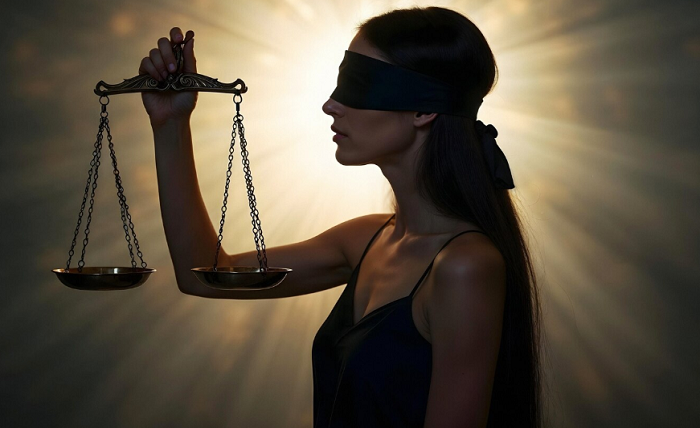More Than a Defense—Legal Representation That Supports Rehabilitation with Integrity
There are moments in life when everything feels like it’s hanging in the balance—where the weight of a criminal charge brings more than legal consequences. In those moments, the kind of legal representation someone receives can shape more than a case—it can shape a future.
Not all charges are the same. Some involve sensitive circumstances, personal struggles, or histories that don’t fit neatly into black-and-white categories. That’s where a different kind of defense matters. One grounded not just in legal knowledge, but in empathy, ethics, and a deep understanding of what justice truly looks like when real lives are involved.
This is legal representation that sees the whole person—not just the paperwork—and works to ensure that accountability never overshadows fairness, and that rehabilitation is seen not as a loophole, but as a legitimate, necessary part of the process.
Where Law Meets Life—Understanding the Full Picture
Every charge comes with a story. Behind the headlines and court documents are people facing struggles that aren’t always visible: trauma, addiction, mental health challenges, or environments that shaped choices under pressure. Legal professionals working in these spaces take the time to understand that context—not as an excuse, but as a foundation for advocating better. If anyone is facing charges for illegal pornography in Los Angeles, they will bear the consequences of their actions; however, it is essential for them to have legal representation.
This doesn’t mean justice is ignored. Far from it. It means justice is viewed through a lens that includes growth, reform, and humanity. It’s about building legal arguments that reflect not just what the law says, but how the law can serve society best—by encouraging accountability that leads to lasting change.
And that starts with listening, learning, and lifting the full story into the courtroom.
A Defense That Respects the Process—And the Person
Ethical representation isn’t just about knowing statutes and filing motions on time. It’s about approaching each case with a sense of responsibility to both the client and the justice system. That means transparency, honesty, and guiding clients with clarity—even when the advice isn’t easy to hear.
Legal professionals in this space don’t sugarcoat the facts, but they also don’t reduce someone to their worst mistake. They walk with their clients, step by step, through the process—from arraignment to resolution—helping them understand what’s at stake and what’s possible.
In court, this approach creates a narrative rooted in facts, law, and context. Outside of court, it empowers clients to make informed choices, access resources, and rebuild. That’s not just defense. That’s advocacy with purpose.
Supporting Rehabilitation Without Judgment
One of the most critical shifts in modern legal defense has been recognizing that punitive measures alone don’t always solve the problem. For charges rooted in substance use, mental health disorders, or cycles of poverty, punishment without support is like building a fence around a fire—it doesn’t put out the flames.
That’s why attorneys committed to ethical representation often work closely with treatment programs, social workers, and rehabilitation services. These aren’t sidebars—they’re essential tools in creating outcomes that make a difference.
When courts see genuine effort toward change, doors often open to alternatives: diversion programs, suspended sentences, or community-based rehabilitation options. But these outcomes don’t happen by chance. They’re built by skilled advocates who know how to present progress, not just plead for leniency.
Restoring Dignity in the Legal System
The courtroom is a space of high tension, where fear, shame, and stigma often cloud the proceedings. But it doesn’t have to be dehumanizing. Attorneys who prioritize fairness and dignity help shift the tone. They speak with respect. They demand respect for their clients. And they remind the system that every individual deserves to be heard, not just judged.
This approach changes more than cases—it changes people. Clients who feel seen and supported are more likely to engage in their defense, pursue counseling or education, and come out of the experience stronger, not broken.
Restoring dignity isn’t just a moral imperative. It’s a strategy that works—and one the legal system desperately needs more of.
Advocating Within the System—and Beyond
The work doesn’t end when the gavel drops. Ethical legal advocacy also extends to helping clients navigate what comes after a plea deal, verdict, or dismissal. That includes sealing records, helping restore civil rights, and connecting with reentry programs that support reintegration into the community.
Attorneys may also advocate for broader changes within the justice system: lobbying for more equitable sentencing, working on restorative justice initiatives, or educating the public about the realities behind certain offenses. That kind of involvement speaks volumes about their commitment to justice—not just for one client, but for the communities affected by these issues every day.
Why Choosing the Right Representation Matters
For those facing serious or sensitive charges, not all legal representation fits the moment. It’s not just about who has the most trial experience or the flashiest credentials. It’s about finding someone who listens. Someone who respects where a person’s been—and where they want to go.
The right attorney doesn’t just fight for a better outcome—they help build a better path. One that includes redemption, recovery, and renewed purpose.
That kind of representation doesn’t just protect rights. It changes lives.
Final Thought: The Justice System Works Best When It Works for Everyone
Law and ethics don’t have to live in separate corners. In the right hands, they complement each other—creating defense strategies that are both smart and compassionate. And when rehabilitation is taken seriously, everyone benefits: the individual, the court, and the community at large.
Justice, at its best, isn’t just about consequences. It’s about balance. About recognizing harm, yes—but also recognizing humanity. Legal professionals who understand this don’t just navigate the system—they shape it into something that works better for everyone it touches. And that’s where true advocacy begins.


